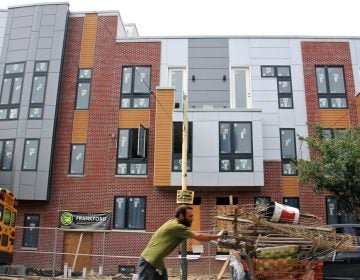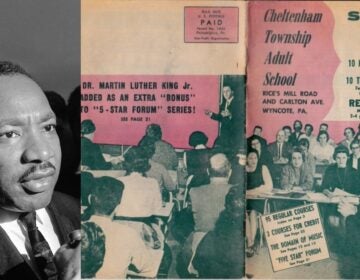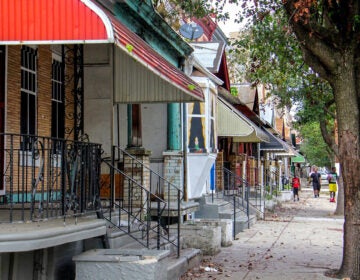Bank set to settle lending discrimination lawsuit alleging ‘redlining’ in Philly area
The agreement is part of a broader initiative to root out the discriminatory practice.

ESSA Bank & Trust has settled a federal lending discrimination lawsuit. (Google maps)
A Pennsylvania-based bank has agreed to pay $3 million to settle a federal lending discrimination lawsuit alleging the company refused to provide credit services to people in majority-Black and Hispanic neighborhoods.
From at least 2017 to 2021, investigators say ESSA Bank & Trust intentionally “engaged in a pattern of unlawful redlining” in the Philadelphia area. Redlining, which is barred by federal law, dates back to the 1930s and occurs when lenders discourage people from applying for home loans and other credit services, deny equal access to them, or avoid providing them based on the race, color, or national origin of the neighborhood’s residents.
“Unfortunately, that ugly legacy lingers in the business practices, whether conscious or not conscious, of a lot of banks today,” said U.S. Attorney Jacqueline Romero in an interview.
“It is important that we rectify that. That individual borrowers who are living in majority-minority neighborhoods are assessed based on their own characteristics, their own credit worthiness. That they’re given a fair chance to have lending tools because that is future wealth.”
A judge must still approve the proposed consent order, filed on Wednesday along with the complaint. If approved, ESSA will invest $2.92 million in a loan subsidy fund designed to increase access to their credit services in majority-Black and Hispanic neighborhoods, including home mortgages and home improvement loans
The bank will also spend $125,000 on community partnerships and $250,000 on advertising, outreach, consumer financial education, and credit counseling.
There were no civil penalties.
“Obviously, they’re enjoined from discriminating in lending practices in the future. That’s part of the consent decree. But there are some significant compliance measures that they have to take as well,” Romero said.
ESSA agreed to settle the case despite the fact the bank “categorically denies” the allegations filed by the U.S. Department of Justice’s Civil Rights Division and the U.S. Attorney’s Office for the Eastern District of Pennsylvania.
In a statement posted on the bank’s website, President and CEO Gary Olson said the settlement “reflects our business decision to avoid the costs, uncertainties, and distractions of litigation.”
“We are proud of our record of community service. While vehemently denying the government’s allegations of redlining, we have cooperated expeditiously and fully with the investigation into this matter. We look forward to continuing to work closely with the DOJ going forward, and just as importantly, with our communities, to provide lending opportunities for all qualified borrowers, no matter their background, or where they live or work,” said Olson.
According to the complaint, ESSA avoided providing home loans and other mortgage services in majority-Black and Hispanic neighborhoods that fell within its lending area. The bank also allegedly excluded residents of these neighborhoods from participating in a program created to expand home ownership opportunities for low- and moderate-income households, and “largely excluded” them from residential marketing and outreach efforts.
Instead, the company allegedly targeted majority-white areas.
The suit also says ESSA had just one loan officer serving its four Philadelphia-area banks. And that the bank effectively ignored a series of third-party reports showing a lack of mortgage-lending activity in majority-Black and Hispanic areas, as well as a lack of applications from Black and Hispanic borrowers.
Between 2017 and 2021, ESSA received just under 4,000 mortgage loan applications from within the bank’s assessment area, according to the complaint. Only 63 of them came from majority-Black and Hispanic census tracts. That translates to less than 2% — a rate four times lower than the bank’s peers.
“ESSA’s conduct and practices reinforced and perpetuated segregated housing patterns. The Bank’s conduct was not justified by a legitimate, nondiscriminatory reason or business necessity and was not necessary to achieve substantial, legitimate, nondiscriminatory interest,” the department said.
The case is part of a renewed focus by the Justice Department to root out redlining, which it calls a “persistent form of discrimination.” To date, the department has announced seven redlining cases and settlements representing $87 million in relief.
The list includes a $20 million settlement with Trident Mortgage Company for alleged redlining in the Philadelphia metropolitan area.
WHYY is your source for fact-based, in-depth journalism and information. As a nonprofit organization, we rely on financial support from readers like you. Please give today.







